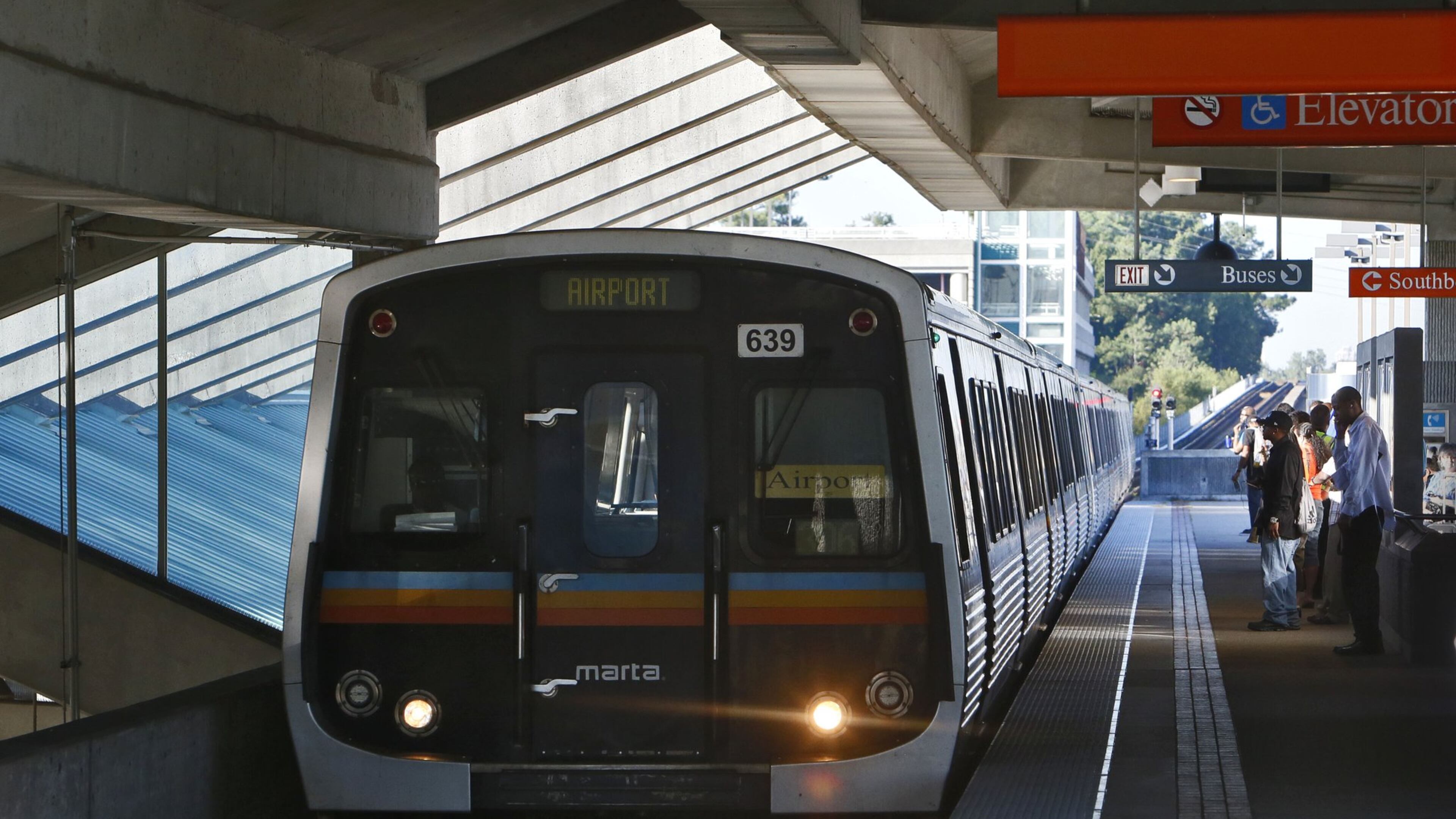Gwinnett to move forward with MARTA extension in possible transit vote

Gwinnett County commissioners broke an apparent impasse Tuesday and decided on a transit expansion plan that would include heavy rail in the county.
Commissioners still must decide whether to place the more-than $12 billion plan on the November ballot — a decision that must be made by the end of July.
But Tuesday's 3-1 vote ended months of indecision and debate about whether the transit expansion proposal should include heavy rail. It would be the second time in less than two years that voters have been asked if they want MARTA rail service in Gwinnett.
In March 2019, a proposed MARTA expansion with heavy rail lost by eight percentage points.
Commission Chairman Charlotte Nash on Tuesday changed her vote after earlier trying to find a compromise that would delay rail while building a robust bus-based system. Nash, a member of the regional transit board, said she was not "totally satisfied" with the option, but voted for the heavy rail plan to keep alive the possibility of a November ballot question.
“All of y’all have heard my angst,” she said of the decision.
Nash, a Republican, said she was “very sympathetic” to Commissioner Marlene Fosque’s vote against the heavy rail option. Fosque, a Democrat, said she is not opposed to heavy rail — she just thinks it should come later. A plan that defers the heavy rail component, she said, would allow for more local bus service and high-capacity bus service sooner.
Fosque said she made her decision after hearing from residents.
“I did what I had to do representing the people,” she said. “I heard your voice.”
Still, Fosque said she wouldn’t rule out voting to put the measure on the November ballot.
Before commissioners vote to place the plan on the ballot, they must also specify a funding source for the penny sales tax to pay for the projects.
The choices are MARTA, in which case the regional transit agency would manage the entire Gwinnett system; or the new Atlanta-Region Transit Link Authority tax, in which case MARTA would run the heavy rail, but the county could operate the rest of the system.
Commissioner Ben Ku, a Democrat, said his colleagues have continued to leave both options open as they debate the choice that would be best for county residents.
Ku said he thought it was important to move forward with heavy rail now because it will only get more expensive.
“The cost of rail is not getting any cheaper,” Ku said. “The sooner we begin construction, the sooner we can start reaping those benefits.”
In statements, spokespeople for MARTA and the ATL Board said they looked forward to reviewing the county's plan.
Republican Commissioner Tommy Hunter did not participate in the vote. Commissioner Jace Brooks, who is also a Republican, said he thought the months of debate created a better project for voters to consider.
“Obviously, I’m thrilled we’re moving forward with it and the plan continues to have heavy rail,” he said.
Lawrenceville City Manager Chuck Warbington, a member of the ATL Board and a longtime proponent of transit in the county, said he thought it was "critically important" to have a transit hub outside the Perimeter. Warbington said there was community support for a MARTA extension into the county, and that such a connection would lead to economic development opportunities in the area, as well.
“We are in place to create a regional transit system that’s smooth and connected,” he said of the ATL Board’s role in Gwinnett’s efforts. “I imagine it will have swift approval.”
If commissioners do succeed in getting their transit plan on the ballot this year, the vote will come just 20 months after county voters rejected a plan to expand MARTA into Gwinnett. That plan, known as Connect Gwinnett, failed in a March 2019 special election. Since then, county leaders have largely blamed the loss on the odd timing for the vote, while pledging to improve the transit plan so residents could more easily see how services would improve in their areas.
The current plan includes more coverage across the county, and emphasizes key links in the proposal’s early years.
“In some ways, it really is just a process to get us to the referendum and let the people decide if they want to invest in transit options,” said Andy Macke, a member of the ATL Board.



